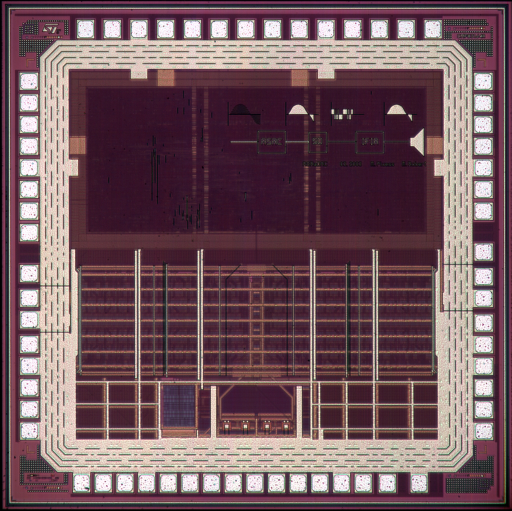The IIS Chip Gallery
ASRaDAC (2003)

by

Modern PC-Systems are more and more used in Consumer Electronics fields, like in Audio and Video applications. PC users need different and arbitrary sources and sinks despite any standard or interface. This would impose the need of a global synchronization of sources and sinks, which is clearly not feasible. This project solves this problem for the case of an USB audio-sink by implementing an adaptive sample rate converter: the data are sent via USB interface at a certain rate, re-sampled according to the local master clock and converted into analog.
The system is divided into two main parts: one DSP belonging to a standalone subsystem handles the communication via USB and the audio-data rate estimation, and an ASIC, that accordingly re-samples the incoming data and then converts it into an analog signal. The data processing rate on the ASIC automatically adapts to the incoming data rate: the digital inputs (in the range of 5-55kHz) are first up-converted to an intermediate frequency in the range of 140-220kHz through a high pass filter and an 8th order SINC interpolator, then up-sampled to the fixed rate of 6MHz through a 4th order 1-bit Sigma-Delta modulator.
The generated quantization noise is then filtered out by an analog FIR with current outputs. Afterwards the signal is sent to the outputs through an analog first order active low pass filter.
The chip has been integrated in a 0.18um CMOS technology and its functionality has been proven.